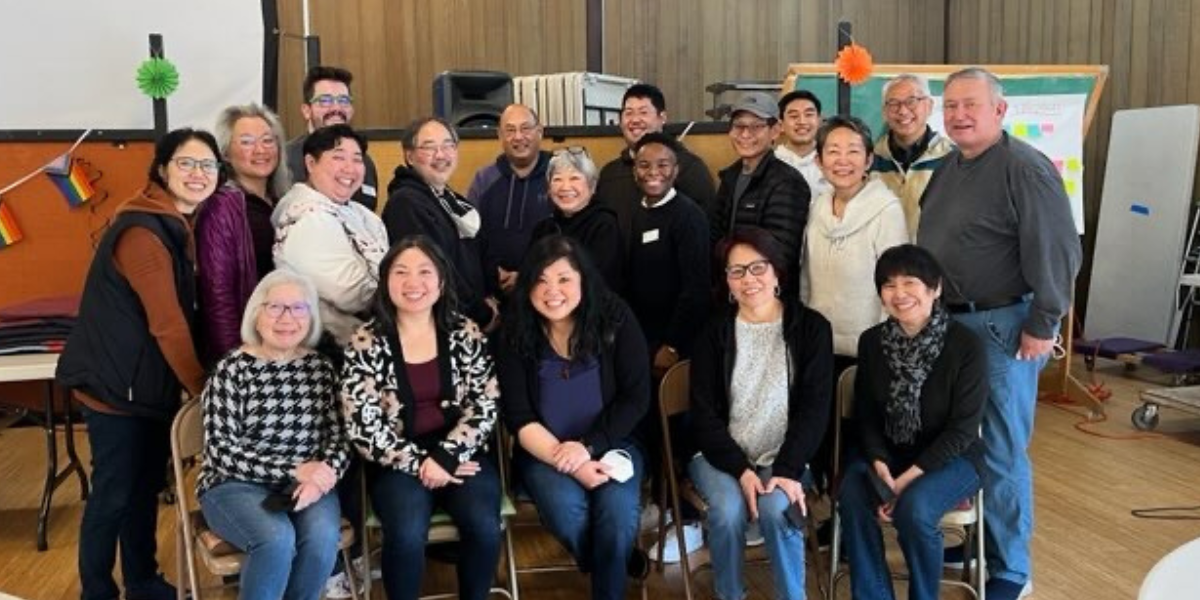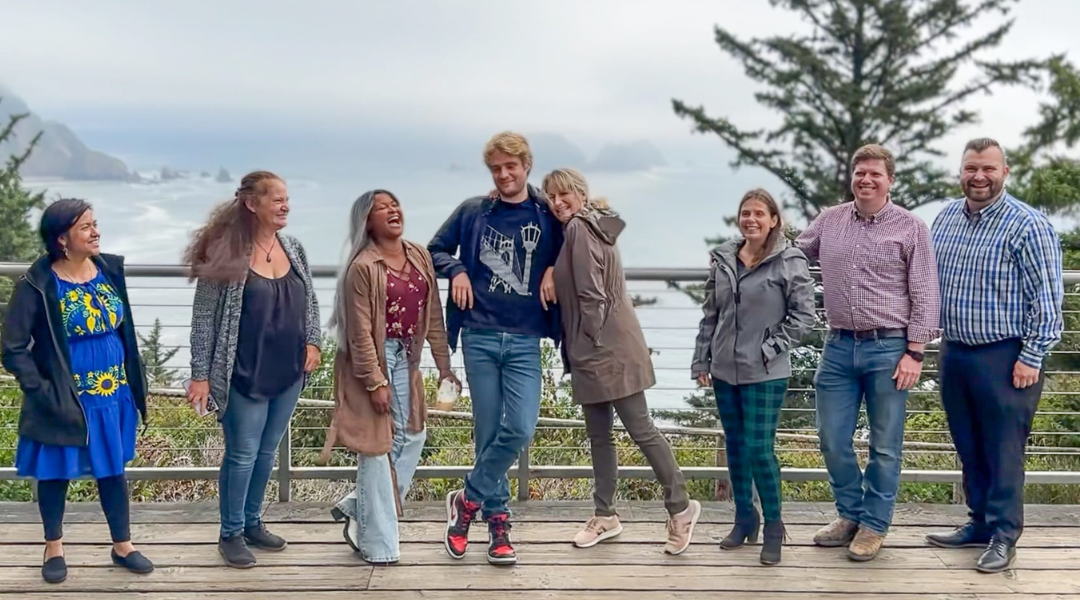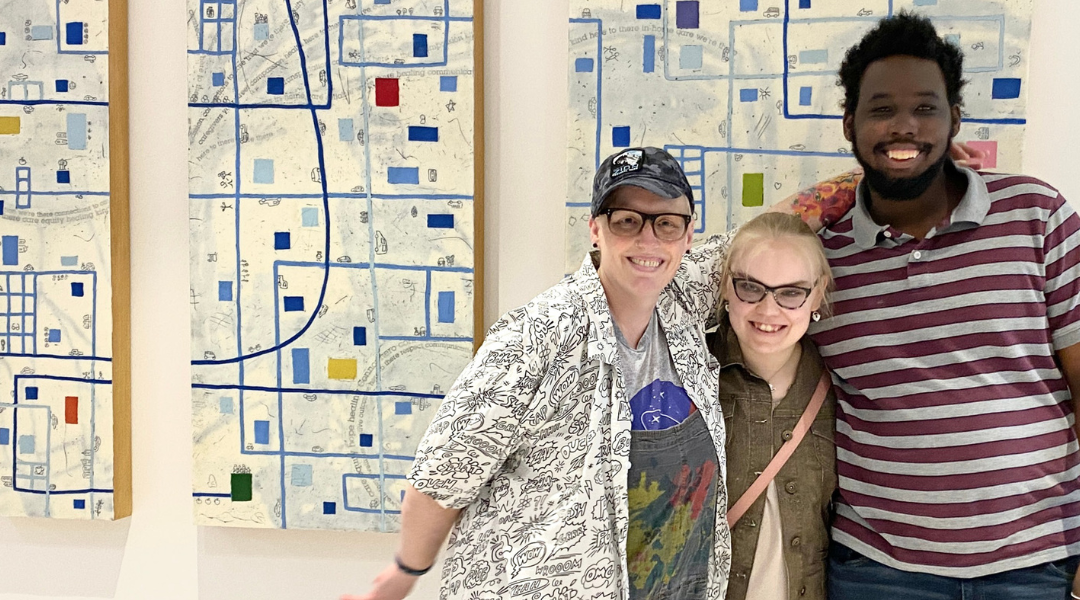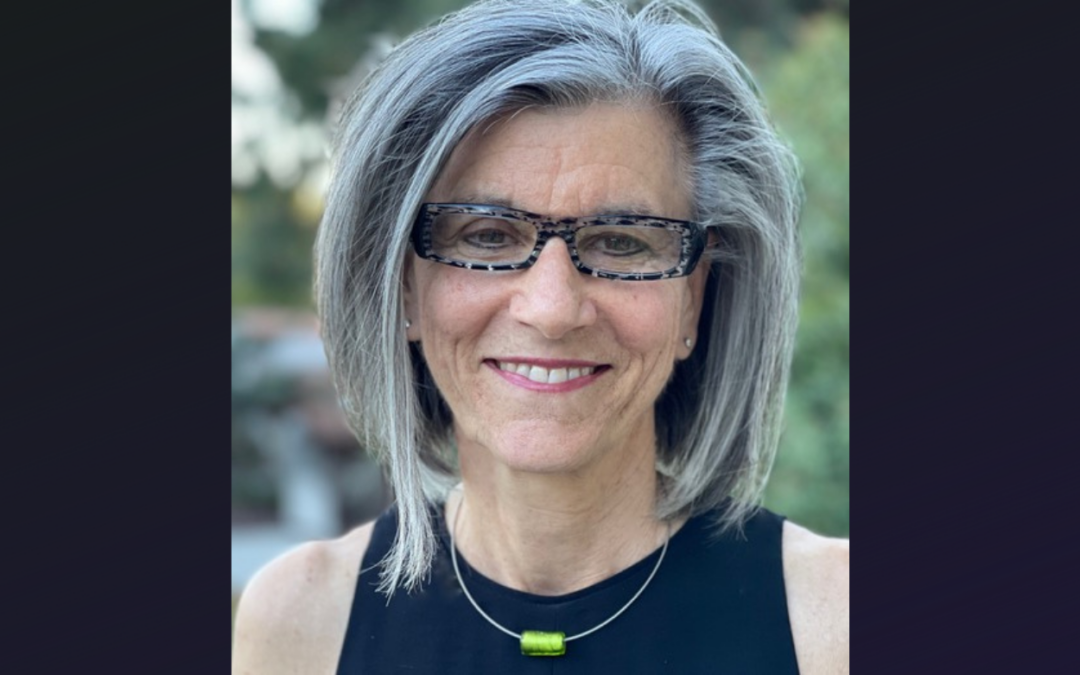
An age diverse group gathers in South Seattle after a learning session designed to support them in faithfully and equitably discerning land use on their church campus.
E.N. West is the co-founder and lead organizer of the Faith Land Initiative of the Church Council of Greater Seattle, one of 10 awardees of the CoGen Challenge to Advance Economic Opportunity. Watch for interviews with all 10 of these innovators bringing older and younger people together to open doors to economic opportunity for all.
What is the Faith Land Initiative and what life events brought you to do this work?
The Faith Land Initiative is one of the organizing arms of the Church Council of Greater Seattle, which supports faith communities of all traditions to equitably discern the use of faith-owned land throughout King County.
Several years ago, I was working as the housing justice organizer for the Church Council. In conversations with faith leaders around the region, it became clear that many predominantly white congregations were experiencing declining membership and feeling burdened by underutilized buildings that were becoming hard to keep up. At the same time, many predominantly Black faith communities and communities of color were engaged in visioning and planning for the future but didn’t have the space or resources needed to bring those visions to life in a relatively fast and affordable way. My colleague and I were in the middle of these two communities that needed support in different ways, and were asking how we could show up for them. That’s the origin story of this program.
What problem are you trying to solve?
Our goal is to transform the relationship that people have to each other and to land. The way we’re doing that is to match resources and needs across multiple faith communities. That can look like addressing the affordable housing crisis, healing racial and/or class divides in a community or finding innovative ways to reconnect a faith institution with the larger community. We’re interested in decommodifying land – taking it off the market and making it community-owned.
Here’s an example: A couple years back, we worked with a Mennonite Church that was trying to figure out what to do with an 8-bedroom 2.5 bathroom home they’d owned for 50 years and no longer needed. It was in a prime location in the city and the value had increased from $30k at the time of initial purchase to $2.5 million. Their congregation had voted to give the home to a BIPOC community organization as a reparative act. We helped them take action on that, accompanying them for seven months to gift this house.
How do youngers and olders solve the problem together?
Faith community spaces are one of the few spaces left in American society that organically bring people together across generations. We strive to support each faith community we work with in building discernment teams that are representative of their congregation, which often means creating an intergenerational team. Older leaders have been at that church for decades and have a strong emotional connection and a lot of wisdom, history, and perspective to bring. Younger members may not have been on earth as long but could have been in that church for decades and bring in a different generational approach in how to address some of the issues or opportunities presented by the crossroads moment in the life of that faith community. Olders will often come in with the practical and technical knowledge of the space. They’ll be challenged, generatively, by youngers who are a bit more pie in the sky and have a big vision. Those two things work really well together and create better outcomes.
Why do you see bringing generations together as important for the work you are doing?
People talk about the “silver tsunami” and how we’re about to experience the largest generational wealth transfer in history, and faith communities are part of that. The largest private landowner in the world is the Catholic Church. In Seattle alone, there are approximately 300 acres of faith-owned land – much of which is underutilized and in prime areas.
This really is an opportunity to think more strategically about how to create more equitable solutions that better support a changing population and align with the values of faith communities. It’s about looking 100 years into the future, and envisioning how these spaces can be better utilized to strengthen communities.
Have you encountered any unexpected positive or negative outcomes in bringing your project to life?
On the positive side, there’s an older white man who joined our first cohort as a representative of his faith community. He had a real estate background and came in with a healthy dose of skepticism – he didn’t think their church needed to be going through this process. His resistance was palpable during our first two meetings. But it was interesting to notice him changing over the next six months and see how his opinion completely shifted, to believing they really needed to be doing this work. Now, he says he always puts the people and values first when he’s working with clients or other faith communities.
What would be your advice to someone who is looking to cogenerate?
Don’t stereotype people based on their age. There’s a tendency to reduce people to their age bracket and then project all these ideas onto them before getting to know who they are as an individual and taking the time to really listen. Put that aside.
What song keeps you motivated?
“Move On Up” by Curtis Mayfield. That’s been consistent my whole life. Back when I was interviewing for jobs a lot, earlier in my career, I would be going to a job interview and feeling nervous. I was mostly in D.C. at that time and it was all in-person. I would always play that song and there was no way to not be in a good mood.





